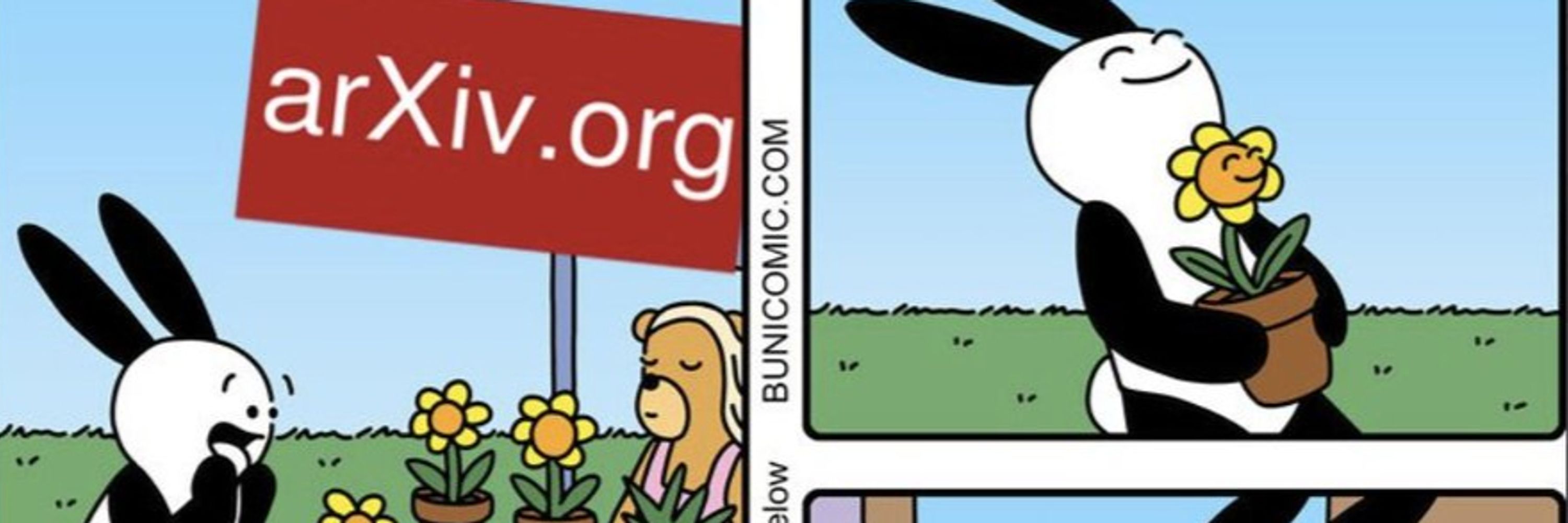
Blog: https://blog.reachsumit.com/
Newsletter: https://recsys.substack.com/
🔗 recsys.substack.com/p/semantic-s...
Introduces an inverse learning framework that reconstructs latent retrieval features from performance scores.
📝 dl.acm.org/doi/10.1145/...
👨🏽💻 github.com/recherche198...

Introduces an inverse learning framework that reconstructs latent retrieval features from performance scores.
📝 dl.acm.org/doi/10.1145/...
👨🏽💻 github.com/recherche198...
Introduces a disentangled semantic tokenizer and hierarchical memory-anchor transformer for multi-modal recommendations.
📝 arxiv.org/abs/2602.11799

Introduces a disentangled semantic tokenizer and hierarchical memory-anchor transformer for multi-modal recommendations.
📝 arxiv.org/abs/2602.11799
LinkedIn presents Feed SR, a transformer-based sequential ranking model achieving +2.10% time spent improvement through RoPE embeddings, incremental training, and GPU optimizations.
📝 arxiv.org/abs/2602.12354

LinkedIn presents Feed SR, a transformer-based sequential ranking model achieving +2.10% time spent improvement through RoPE embeddings, incremental training, and GPU optimizations.
📝 arxiv.org/abs/2602.12354
Achieves up to 4x throughput improvement in visual document retrieval by reducing vectors per page through model-aware spatial pooling
📝 arxiv.org/abs/2602.12510
👨🏽💻 github.com/Ara-Yeroyan/...

Achieves up to 4x throughput improvement in visual document retrieval by reducing vectors per page through model-aware spatial pooling
📝 arxiv.org/abs/2602.12510
👨🏽💻 github.com/Ara-Yeroyan/...
Introduces diffusion language models for document reranking with three approaches (pointwise, logits-based listwise, and permutation-based listwise).
📝 arxiv.org/abs/2602.12528
👨🏽💻 github.com/liuqi6777/Di...

Introduces diffusion language models for document reranking with three approaches (pointwise, logits-based listwise, and permutation-based listwise).
📝 arxiv.org/abs/2602.12528
👨🏽💻 github.com/liuqi6777/Di...
Tencent presents a framework that optimizes LLM reasoning for recommendation through reinforcement learning.
📝 arxiv.org/abs/2602.12530

Tencent presents a framework that optimizes LLM reasoning for recommendation through reinforcement learning.
📝 arxiv.org/abs/2602.12530
Kuaishou presents a framework that improves multi-channel retrieval by aligning trigger selection with downstream engagement rather than direct feedback.
📝 arxiv.org/abs/2602.12564

Kuaishou presents a framework that improves multi-channel retrieval by aligning trigger selection with downstream engagement rather than direct feedback.
📝 arxiv.org/abs/2602.12564
Introduces probabilistic modeling via Gaussian Mixture Models combined with residual quantization for multimodal embedding discretization.
📝 arxiv.org/abs/2602.12593

Introduces probabilistic modeling via Gaussian Mixture Models combined with residual quantization for multimodal embedding discretization.
📝 arxiv.org/abs/2602.12593
Evolves recommendation systems through LLM-driven code optimization, integrating user simulator feedback with model diagnosis.
📝 arxiv.org/abs/2602.12612
👨🏽💻 github.com/Sein-Kim/sel...

Evolves recommendation systems through LLM-driven code optimization, integrating user simulator feedback with model diagnosis.
📝 arxiv.org/abs/2602.12612
👨🏽💻 github.com/Sein-Kim/sel...
Introduces a token-level filtering framework that addresses RAG's scalability bottleneck by suppressing irrelevant content through gated fusion.
📝 arxiv.org/abs/2602.12709

Introduces a token-level filtering framework that addresses RAG's scalability bottleneck by suppressing irrelevant content through gated fusion.
📝 arxiv.org/abs/2602.12709
Introduces a systematic study of multi-positive optimization objectives for retriever training.
📝 arxiv.org/abs/2602.12727

Introduces a systematic study of multi-positive optimization objectives for retriever training.
📝 arxiv.org/abs/2602.12727
Alibaba presents a framework for multimodal RAG that efficiently handles token-heavy visual data in iterative reasoning.
📝 arxiv.org/abs/2602.12735
👨🏽💻 github.com/Alibaba-NLP/...

Alibaba presents a framework for multimodal RAG that efficiently handles token-heavy visual data in iterative reasoning.
📝 arxiv.org/abs/2602.12735
👨🏽💻 github.com/Alibaba-NLP/...
Apple introduces an asynchronous LLM-judged caching policy that expands static coverage without changing serving decisions, increasing curated static answer usage by up to 3.9x.
📝 arxiv.org/abs/2602.13165

Apple introduces an asynchronous LLM-judged caching policy that expands static coverage without changing serving decisions, increasing curated static answer usage by up to 3.9x.
📝 arxiv.org/abs/2602.13165
🔗 recsys.substack.com/p/semantic-s...
🔗 recsys.substack.com/p/semantic-s...
Proposes a training-free retrieval model using LLM attention layers and entity-based retrieval for context-aware long document retrieval in RAG.
📝 arxiv.org/abs/2602.12278

Proposes a training-free retrieval model using LLM attention layers and entity-based retrieval for context-aware long document retrieval in RAG.
📝 arxiv.org/abs/2602.12278
Defines token overflow in soft compression for RAG and proposes lightweight probing classifiers to detect it without LLM inference.
📝 arxiv.org/abs/2602.12235
👨🏽💻 github.com/s-nlp/overfl...

Defines token overflow in soft compression for RAG and proposes lightweight probing classifiers to detect it without LLM inference.
📝 arxiv.org/abs/2602.12235
👨🏽💻 github.com/s-nlp/overfl...
Tencent presents a lightweight listwise reranker using attention scores from retrieval heads.
📝 arxiv.org/abs/2602.12192
🤗 huggingface.co/MindscapeRAG...

Tencent presents a lightweight listwise reranker using attention scores from retrieval heads.
📝 arxiv.org/abs/2602.12192
🤗 huggingface.co/MindscapeRAG...
Meituan presents a transformer-based foundation model using heterogeneous tokenization for multi-scenario recommendation without input alignment.
📝 arxiv.org/abs/2602.11235

Meituan presents a transformer-based foundation model using heterogeneous tokenization for multi-scenario recommendation without input alignment.
📝 arxiv.org/abs/2602.11235
Kuaishou releases the largest e-commerce search dataset with real user queries, covering recall, ranking, and relevance tasks.
📝 arxiv.org/abs/2602.11518
👨🏽💻 github.com/benchen4395/...

Kuaishou releases the largest e-commerce search dataset with real user queries, covering recall, ranking, and relevance tasks.
📝 arxiv.org/abs/2602.11518
👨🏽💻 github.com/benchen4395/...
Tencent introduces a framework that compresses long user interaction histories into compact Preference Memory tokens for efficient generative recommendation.
📝 arxiv.org/abs/2602.11605

Tencent introduces a framework that compresses long user interaction histories into compact Preference Memory tokens for efficient generative recommendation.
📝 arxiv.org/abs/2602.11605
Bilibili introduces a framework for efficient feature interaction in CTR prediction, achieving 26x fewer parameters
📝 arxiv.org/abs/2602.12041
👨🏽💻 github.com/shishishu/MLCC

Bilibili introduces a framework for efficient feature interaction in CTR prediction, achieving 26x fewer parameters
📝 arxiv.org/abs/2602.12041
👨🏽💻 github.com/shishishu/MLCC
Uses token-level gradient attributions from retrievers to guide LLM-based query rewriting, improving retrieval effectiveness without retraining the model.
📝 arxiv.org/abs/2602.11841
👨🏽💻 github.com/anonym-submi...

Uses token-level gradient attributions from retrievers to guide LLM-based query rewriting, improving retrieval effectiveness without retraining the model.
📝 arxiv.org/abs/2602.11841
👨🏽💻 github.com/anonym-submi...
Alibaba releases a 4.1B interaction dataset and decoder-only generative framework for multi-task travel recommendation.
📝 arxiv.org/abs/2602.11664
👨🏽💻 github.com/AMAP-ML/IntT...

Alibaba releases a 4.1B interaction dataset and decoder-only generative framework for multi-task travel recommendation.
📝 arxiv.org/abs/2602.11664
👨🏽💻 github.com/AMAP-ML/IntT...
Google presents a system where LLM agents autonomously evolve recommender models by generating hypotheses, writing code & validating changes through A/B testing.
📝 arxiv.org/abs/2602.10226

Google presents a system where LLM agents autonomously evolve recommender models by generating hypotheses, writing code & validating changes through A/B testing.
📝 arxiv.org/abs/2602.10226
Tencent uses value-guided decoding and sibling-relative advantage learning to improve generative recommendation.
📝 arxiv.org/abs/2602.10699

Tencent uses value-guided decoding and sibling-relative advantage learning to improve generative recommendation.
📝 arxiv.org/abs/2602.10699

